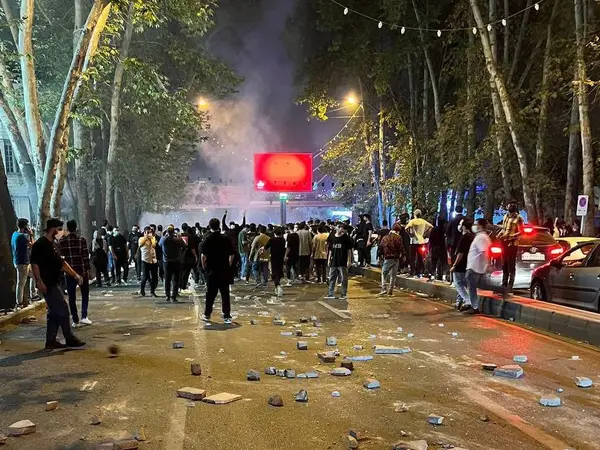Iranians sang the protest song “Baraye” over rooftops and from windows Monday night after it won the first Grammy Award for Best Song for Social Change Sunday.
Iran International has received many videos showing that the song “Baraye” was played and sung by people in different neighborhoods of Tehran and in their cars after it won the award.
People also celebrated the award in Ahwaz, Jiroft, Esfahan, and Karaj to show gratitude to Shervin Hajipour for creating the song.
The song, which was released in the early days of the protests ignited by the death of Mahsa Amini in 'hijab police' custody, was viewed more than 40 million times in two days on Shervin’s Instagram account, and has since become the unofficial anthem of the women-led uprising.
The word ‘baraye,’ which is translated from Persian as “for …” or “for the sake of”, is repeated at the start of every line of the song, which is composed of a collection of tweets by Iranians bemoaning the situation in their country: “For dancing in the streets; for the fear of kissing; for the students and their future”, and “for women, life, freedom”.
After the impactful song went viral and rocked social media, Shervin was arrested by the regime’s agents and the song was removed from his social media pages. He was released on bail in October after he made a forced confession and an apology on his Instagram page. His case is still going through the 'legal' process, according to the Islamic Republic News Agency.
After winning the Grammy, Hajipour simply wrote on Instagram, "We won." However, a large number of Iranians from all around the world congratulated him for the award, calling it a triumph for the antigovernment protests.
There was no immediate reaction in Iranian state media or from government officials to Hajipour’s Grammy victory. The now popular Iranian singer was among more than 19,600 people who have been arrested during the demonstrations, according to Human Rights Activists in Iran. At least 527 people have been killed.
In the past five months, many parts of Iran witnessed the largest protests since the 1979 revolution.
With the death of Mahsa Amini in the custody of the ‘morality’ or ‘hijab police’, the flames of protests against the Islamic Republic flared up to form what many call the first female-led revolution.
“Women are forced to cover their hair with hijab and their bodies in loose clothing. They cannot dance publicly, cannot drive motorcycles and cannot travel without parental or spousal approval — just to name a few restrictions [because] compulsory hijab is a pillar of the Islamic Republic — without it, the foundation is broken,” wrote Politico.
However, the clerical regime has constantly tried to instill the fear that without the Islamic Republic the alternative is ISIS or civil war, but the people are not buying this narrative saying the time has come for an end to clerical rule and the Islamic Republic must be replaced with a secular, democratic government.
A recent online opinion poll conducted from abroad showed that 80 percent of the people in Iran wanted end clerical rule and opt for secular democracy.
